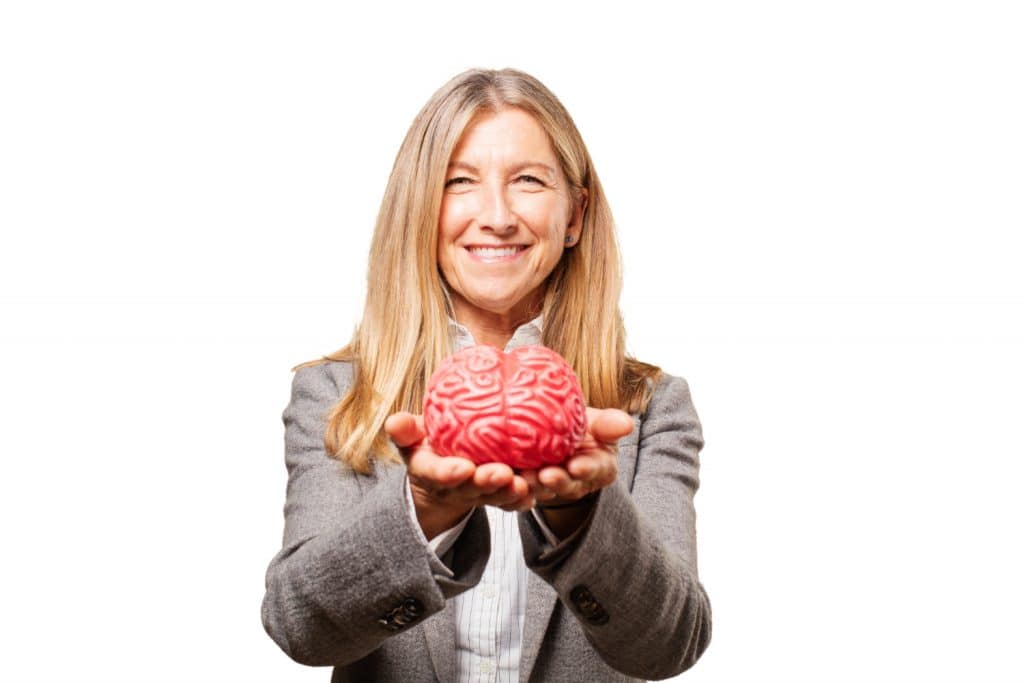🧠 The Brain-Food Connection: How Your Diet Directly Impacts Mental Health

Introduction: Why Diet Matters More Than Ever for Mental Health
Modern research has uncovered something powerful:
what you eat doesn’t just shape your body — it actively shapes your mind.
For years, nutrition was viewed mainly through the lens of weight, energy, and physical health. Today, a growing body of evidence shows a profound interaction between food, mood, stress responses, cognitive sharpness, and emotional stability.
This new understanding is transforming how experts view mental wellness.
Your daily meals are not just calories — they are information that your brain uses to regulate thoughts, emotions, and behavior.
On Joyfinderz.com, where we explore lifestyle, wellbeing, and smart living strategies, understanding this connection helps readers build stronger habits and healthier routines.
🌀 The Mind-Gut Connection: How Your Body Talks to Your Brain
The Gut-Brain Axis: A Two-Way Communication System
Inside the body is a biological highway called the gut-brain axis, a sophisticated channel of nerves, immune messengers, hormones, and microbial signals.
This pathway allows the digestive system and brain to influence each other in real time:
-
Stress can disrupt digestion.
-
Digestive issues can affect mood.
-
Gut bacteria can influence anxiety, depression, and cognitive clarity.
The vagus nerve, one of the longest nerves in the body, acts as the main “wire” connecting these two powerful systems.
Understanding this relationship explains why emotional tension can trigger stomach discomfort and why gut imbalance can contribute to irritability or low mood.
🔬 The Science Behind Brain Nutrition

How Nutrients Shape Neurotransmitters
Neurotransmitters — serotonin, dopamine, GABA, and others — regulate mood, focus, memory, and motivation.
Your brain relies on nutrients to produce these chemicals.
-
Amino acids (from protein) build dopamine and serotonin.
-
B vitamins help synthesize neurotransmitters.
-
Magnesium and zinc assist in nerve signaling.
-
Omega-3 fatty acids keep brain cells flexible and efficient.
When your diet is lacking, neurotransmitter production slows — leading to fatigue, irritability, stress sensitivity, or mental fog.
🔐 The Blood-Brain Barrier: The Brain’s Security Gate
The blood-brain barrier (BBB) protects this delicate organ from toxins but also limits which nutrients can enter.
Eating fresh, whole foods supports BBB integrity, allowing only beneficial compounds — like antioxidants and healthy fats — to nourish brain tissue.
When the BBB is impaired (often due to inflammation from poor food choices), brain health declines.
🌿 Nutritional Heroes for Mental Wellbeing
1. Omega-3 Fatty Acids: The Brain’s Super Fuel
Rich sources include:
-
Salmon
-
Sardines
-
Flaxseeds
-
Walnuts
-
Chia seeds
Omega-3s are essential for mood regulation, memory retention, and reducing inflammation related to depression.
2. Antioxidants: Protection Against Brain Aging
Antioxidants fight oxidative stress, which accelerates mental decline.
Top sources:
-
Blueberries
-
Spinach
-
Dark chocolate (70%+)
-
Raspberries
-
Green tea
Regular intake protects brain cells, stabilizes mood, and supports long-term cognitive health.
3. B Vitamins, Vitamin D, and Essential Minerals
These nutrients support:
-
Energy production
-
Neurotransmitter synthesis
-
Hormonal balance
-
Stress resilience
Key foods include eggs, leafy greens, seeds, legumes, and sunlight exposure (for Vitamin D).
🦠 The Gut Microbiome: Your “Second Brain”
Your digestive tract holds over 100 trillion microbes, forming a powerful community known as the microbiome.
These microbes:
✔ regulate serotonin (almost 90% is produced in the gut!)
✔ influence stress hormones
✔ modulate inflammation
✔ support cognition and emotional balance
How Food Shapes Gut Bacteria
Healthy foods = healthy microbiome.
Highly processed foods = microbial imbalance.
Good bacteria thrive on:
-
fruits
-
vegetables
-
whole grains
-
fermented goods (kimchi, yogurt, kefir)
-
fiber-rich meals
When gut bacteria flourish, mental clarity, emotional stability, and digestion all improve.
🚫 Foods That Harm Mental Health
Not all calories are equal. Many modern foods undermine brain function.
Processed Foods and Sugars
These foods often cause:
-
inflammation
-
mood swings
-
unstable energy
-
sleep problems
-
cognitive fog
Excess sugar disrupts blood glucose, making irritability and anxiety more likely.
Saturated Fats and Additives
These can weaken the blood-brain barrier and reduce gut microbes — both linked to depressive symptoms.
🍽️ Dietary Patterns That Support Brain Function

The Mediterranean Diet
Backed by decades of research, this diet supports:
-
stable mood
-
reduced anxiety
-
improved memory
-
lower risk of depression
It emphasizes:
-
olive oil
-
fish
-
vegetables
-
legumes
-
whole grains
-
nuts
The MIND Diet
A hybrid of Mediterranean and DASH diets, shown to slow cognitive decline by up to 53%.
Focus foods:
-
leafy greens
-
berries
-
whole grains
-
nuts
-
healthy fats
Both diets are flexible and ideal for long-term mental health.
🧩 Practical Tips for Brain-Healthy Eating
Simple Food Swaps (Easy Wins)
-
White bread → whole grains
-
Candy → nuts or berries
-
Processed meats → fatty fish
-
Fries → roasted vegetables
Meal Planning for Consistency
Weekly planning ensures stable brain fuel.
Try:
-
prepping vegetables in advance
-
batch-cooking grains
-
keeping healthy snacks handy
-
choosing diverse colors on the plate
Start Gradually — Small Changes Matter
One healthy change a day can remodel your entire mental landscape.
Examples:
-
add 1 serving of fruit daily
-
switch soda for water
-
include leafy greens in lunch
💧 Beyond Diet: Lifestyle Habits That Boost Mental Health

Nutrition is a major pillar — but not the only one.
Physical Activity
Exercise improves blood flow, mood, and neuroplasticity.
Sleep
Deep sleep repairs the brain and stabilizes emotions.
Stress Management
Breathing exercises, mindfulness, and nature time reduce cortisol and improve mental resilience.
Hydration
Even mild dehydration impacts memory and focus.
📊
| Nutrient | Brain Benefits | Best Food Sources |
|---|---|---|
| Omega-3 Fatty Acids | Improves mood, memory, brain cell protection | Salmon, walnuts, flaxseeds |
| Antioxidants | Protects against oxidative stress and aging | Berries, dark chocolate, greens |
| B Vitamins | Supports neurotransmitters & energy | Eggs, legumes, leafy greens |
Science is clear: your diet shapes your mood, energy, and emotional resilience.
By choosing nutrient-rich foods and avoiding highly processed options, you strengthen not just your physical body — but also your mental foundation.
Even small steps can produce major long-term changes.
Healthy meals today create a healthier mind tomorrow.





